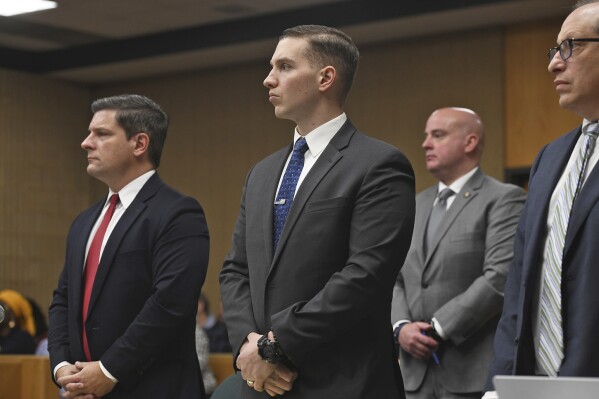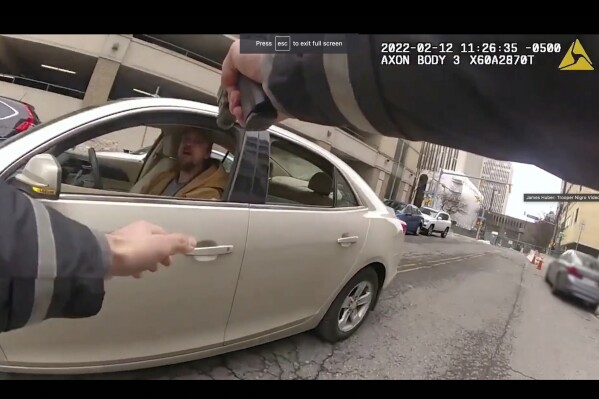U.S. Immigration and Customs Enforcement agents roll out body cameras to agents in five cities
WASHINGTON (AP) — U.S. Immigration and Customs Enforcement agents in five cities will start wearing body-worn cameras as they interact with the public under a new policy announced Wednesday.
Acting ICE Director Patrick J. Lechleitner said the agency has 1,600 body-worn cameras that will be furnished to agents and officers in Baltimore, Philadelphia, Washington, D.C., Buffalo and Detroit.
“This is also an important step to further build public trust and confidence in our dedicated and professional law enforcement officials,” Lechleitner said.
The move is part of efforts rolled out by President Biden in 2022 to require federal law enforcement officers who are out in the public to wear the cameras to increase transparency and trust in law enforcement.
ICE is made up of two law enforcement arms — Homeland Security Investigations special agents who investigate transnational crime — and Enforcement and Removal Operations officers who arrest and remove people determined not to have the right to stay in America.
ICE conducted a six-month pilot program with HSI agents in New York, Newark, El Paso and Houston and another pilot program with ERO deportation officers in Atlanta, Indianapolis and Salt Lake City, Lechleitner said.



The goal is to eventually expand the body cameras nationwide, but Lechleitner said to expand beyond the initial five cities the agency would need more funding from Congress.
“Right now, we can’t do more than those cities,” he said.
The agency in January laid out policies detailing when body-worn cameras would be used, including executing pre-planned arrest warrants, executing a removal order, or responding to violent disturbances at ICE facilities. The agency said specifically that the cameras would not be used to record people engaged in activities protected by the First Amendment to the U.S. Constitution.
Disclaimer: The copyright of this article belongs to the original author. Reposting this article is solely for the purpose of information dissemination and does not constitute any investment advice. If there is any infringement, please contact us immediately. We will make corrections or deletions as necessary. Thank you.




